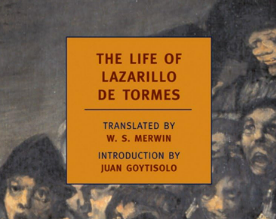Chapter VIII: How Lazaro Brought a Lawsuit against His Wife
byChapter VIII: How Lazaro Brought a Lawsuit against His Wife begins as Lazaro enjoys a brief period of comfort and recognition. His status has grown, his purse is full, and with it comes a swarm of companions eager to flatter him. These new friends are not drawn by loyalty, but by the shine of his good fortune. It is they who begin whispering rumors into his ear—stories about his wife and her closeness with the archpriest. They claim that she’s more than just familiar with the man who had once helped Lazaro, and that his honor hangs in the balance. Though Lazaro initially brushes off these remarks, the weight of their insinuations and the echo of public judgment wear down his resolve. He begins to question not only her fidelity but also his own dignity, as defined by those around him.
Eventually, Lazaro’s friends introduce the idea of a lawsuit. They describe it as a path to justice, a way to cleanse his reputation and, perhaps, earn something in return. They offer legal aid at no cost, claiming that any winnings would more than repay the trouble. These men—slick in speech and shallow in loyalty—promise victory as though it were already signed. Their confidence convinces Lazaro, though his heart remains troubled by doubt. Still, pride outweighs hesitation, and he proceeds. With money in hand and resentment swelling, he launches the case, naming both his wife and the archpriest. The arrests are swift, and the scandal louder than Lazaro anticipated. It seems, for a moment, that truth and justice are finally aligned in his favor.
The courtroom drama unfolds rapidly. Witnesses are found, papers signed, and accusations fly across benches and bars. Lazaro watches from the side, half-sure he’s done the right thing and half-afraid he’s undone his own peace. His wife pleads innocence, but the archpriest remains composed and powerful. As the days drag on, Lazaro’s purse grows lighter, each hearing costing more than the last. The lawyers who once promised him everything now demand more to continue. Meanwhile, the archpriest’s influence begins to turn the tide. His supporters flood the court with false testimonies, and Lazaro’s side weakens under pressure.
In a devastating blow, the tables turn entirely. The court, persuaded by crafted lies and authoritative voices, condemns Lazaro. He is ordered to pay the trial’s expenses, retract his accusations, and leave Toledo indefinitely. The same city that once felt like home now casts him out in shame. The taste of public disgrace is sharp, and the silence of his former friends stings even more. Those who had once urged him forward are nowhere to be found, and Lazaro finds himself alone once again, betrayed not just by people, but by the very system he trusted to uphold honor. His wife, now free, returns to her place in the archpriest’s household, while Lazaro is left with questions heavier than the verdict.
On his journey out of the city, Lazaro reflects on what has passed. He recalls the wisdom of one of his former masters, who once said that life moves in cycles, that fortune rises only to fall and falls only to rise again. He clings to that thought now as he walks with empty hands and a bruised spirit. The fall was hard, but he knows others have fallen before him and risen again. The bitterness of betrayal sits beside him, but so too does the understanding that pride, once poked by others, can lead a man into ruin. In trying to defend his name, he lost everything—home, wealth, and the fragile peace he had found.
Despite the harsh outcome, Lazaro’s voice does not lose its ironic tone. He does not beg for sympathy, nor does he cast himself as a hero undone. Instead, he presents his story as a lesson: that honor shaped by others’ opinions is a dangerous pursuit. He shows how society’s obsession with appearances often ruins those who try to live honestly within it. His misstep was not in trusting his wife, but in listening too much to those who pretended to care. In the end, he survives, as always—not untouched, but unbroken. His journey continues, reshaped by yet another bitter truth and another tale added to the book of a life lived among illusion, ambition, and endurance.

